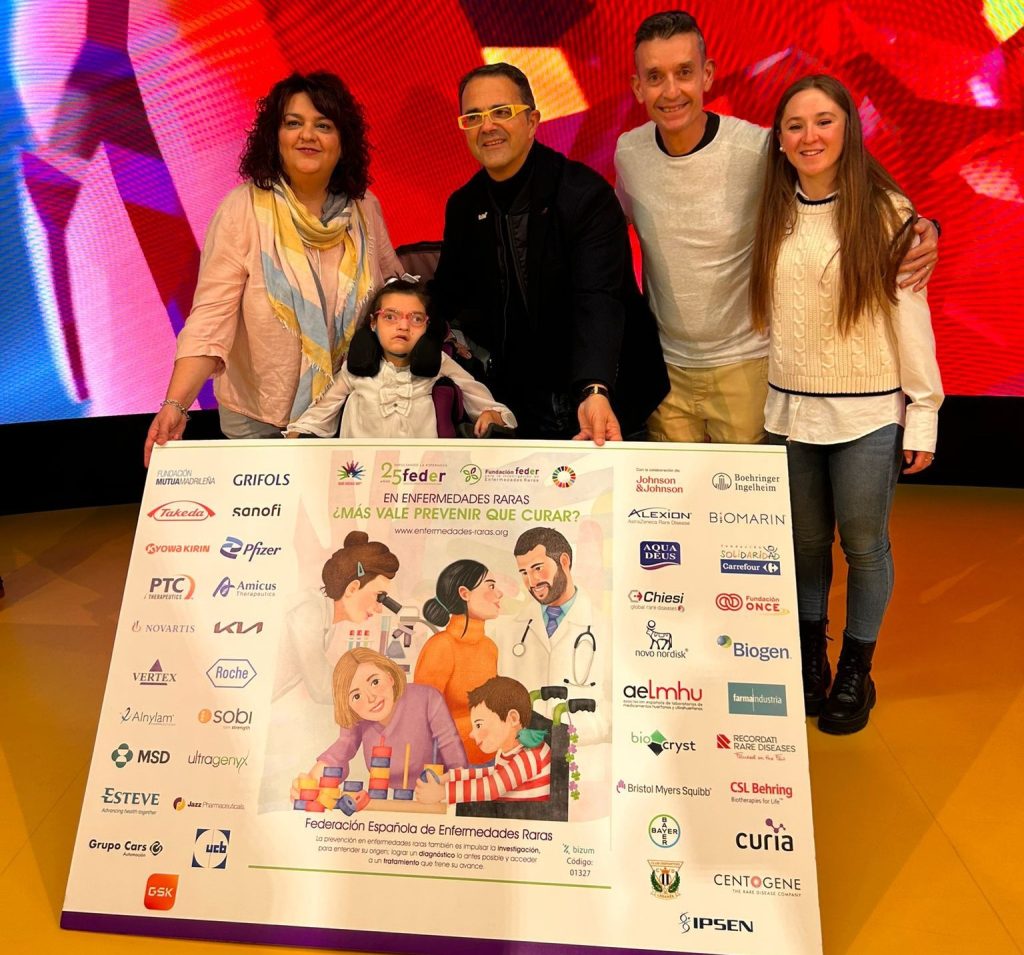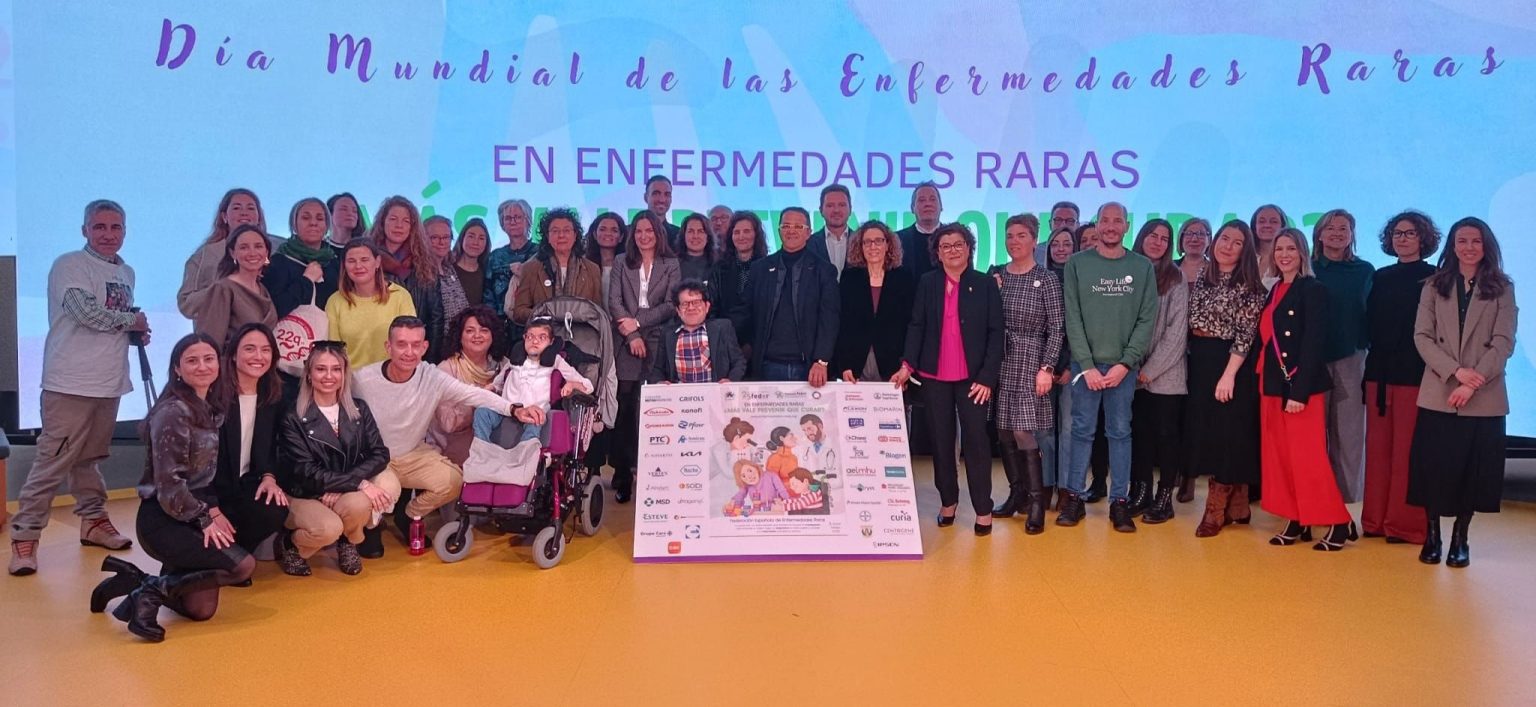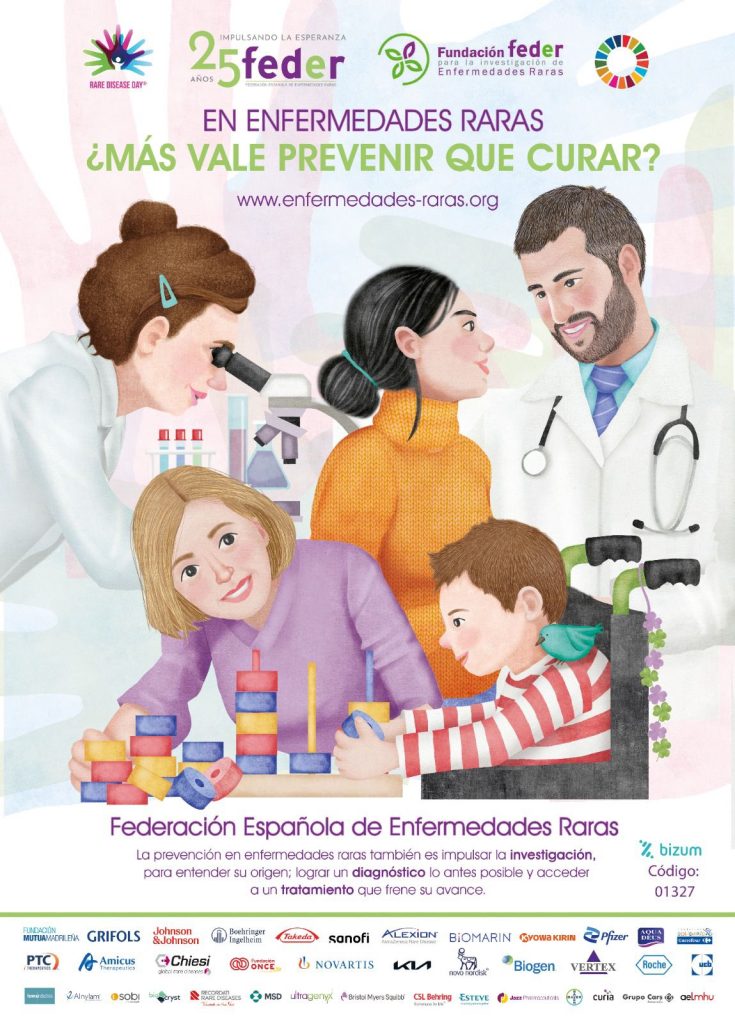The Confederació Mundial de Penyes, within the scope of its CSR subcommittee, joins the Spanish Federation of Rare Diseases (FEDER) to commemorate International Rare Disease Day, which is celebrated today, February 29. Under the slogan “In rare diseases, prevention is better than cure?”, this federation wants to raise awareness among the population about the importance of research to achieve early diagnosis and the need for resources to slow down the evolution of this type of diseases.
The Spanish Federation of Rare Diseases is chaired by Juan Carrión, who is also president of the Federación de Peñas Barcelonistas de Murcia and the Peña Barcelonista de Totana. Throughout the year, it is usual for the penyes movement to collaborate in actions to raise awareness of these diseases, thus underlining the values of solidarity that define FC Barcelona supporters’ clubs. “In our country, the average time of diagnosis is about 6 years, so for many people it is an odyssey Therefore, it is very necessary to achieve early diagnosis, and to do this we must promote personalized and precision genomic medicine, as well as homogenize the number of rare diseases”,, explains Carrión.
Between 6 and 7% of the world population
Rare diseases, or low prevalence diseases, are those of which 5 or fewer cases have been diagnosed for every 10,000 inhabitants Currently, it is estimated that between 6 and 7% of the world’s population lives with these diseases, which is equivalent to about 3 million people in Spain and more than 300 million worldwide The number of rare diseases identified to date exceeds 6,300.
“It is very difficult to prevent the appearance of these diseases, but we can work to accelerate their diagnosis and then slow down their evolution and aggravation. Above all, we must promote research that can provide a future and hope for all the people and families who live with these pathologies. . nd this is precisely what we want to transmit on this International Rare Disease Day, as one of the great challenges we face in our country”, says Juan Carrión, who concludes: “It’s the diseases that are rare, not the people who suffer from them”.









